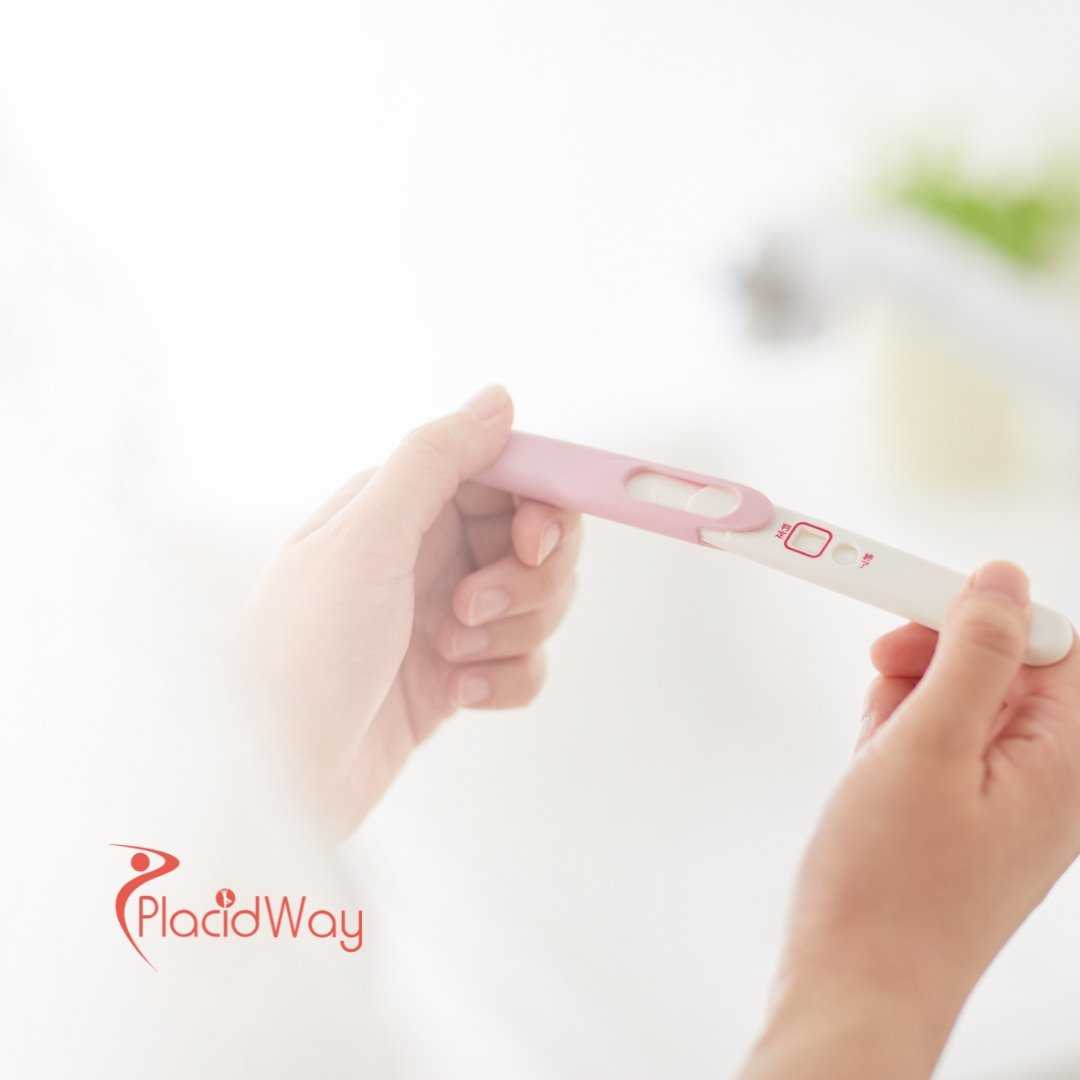Tubal Ligation in Tijuana: Age Limits, Costs, and What to Expect
.png)
Welcome to our detailed guide on tubal ligation in Tijuana, a topic that brings many questions to mind, especially concerning age limits and other requirements. If you're considering this permanent birth control method, you're likely looking for clear, reliable information to help you make an informed decision. Tubal ligation, often referred to as "getting your tubes tied," is a surgical procedure that blocks a woman's fallopian tubes, preventing eggs from reaching the uterus and sperm from fertilizing them. It's a highly effective and permanent form of contraception, chosen by many women who have completed their families or have medical reasons to avoid future pregnancies.
While the procedure is straightforward, understanding the legal and medical guidelines, particularly regarding age, is crucial. In Tijuana, and generally across Mexico, the primary requirement is that the individual be a legal adult. This means being 18 years of age or older. Unlike some regions that might have additional consent forms or waiting periods, Mexico's regulations tend to be more direct, focusing on the patient's capacity for informed consent. This guide aims to address all your pressing questions, offering precise answers followed by comprehensive explanations, ensuring you have all the facts to confidently navigate your options for tubal ligation in Tijuana.
What is the age limit for tubal ligation in Tijuana?
The primary age limit for tubal ligation in Tijuana aligns with the legal age of adulthood in Mexico, which is 18 years old. This means that if you are 18 or older, you are legally able to consent to the procedure. While medical professionals may discuss the permanence of the procedure, especially with younger individuals, there isn't a higher legal age restriction beyond being a legal adult.
It's important to note that while the legal age is 18, individual clinics and doctors might have their own internal guidelines or counseling processes, particularly for younger patients, to ensure they fully understand the irreversible nature of the procedure. This is to ensure that the decision is well-considered and truly aligns with the patient's long-term family planning goals. However, these are typically medical recommendations rather than strict legal requirements imposed by the government.
Are there any other consent requirements for tubal ligation in Tijuana?
Beyond the age requirement, informed consent is paramount for any medical procedure, including tubal ligation in Tijuana. This means that you must be given a clear and comprehensive explanation of what the surgery entails, its permanent nature, potential risks, benefits, and alternative birth control methods. You should have the opportunity to ask questions and have them answered to your satisfaction.
Clinics in Tijuana, especially those catering to international patients, are generally accustomed to providing detailed information and ensuring that patients feel comfortable and well-informed before proceeding. They often have processes in place to explain everything in a language you understand, and some may even require a cooling-off period, though this is not always a legal mandate. The emphasis is on ensuring your decision is voluntary and based on a complete understanding of the procedure's implications.
Is tubal ligation a permanent birth control method?
Tubal ligation is indeed a permanent birth control method. The procedure involves severing, tying, sealing, or banding the fallopian tubes, which are the pathways for eggs to travel from the ovaries to the uterus. Once these tubes are blocked, sperm cannot reach the egg, and the egg cannot reach the uterus, effectively preventing fertilization and pregnancy.
While there are procedures for tubal ligation reversal, their success rates vary and are not guaranteed. Therefore, it is crucial that individuals considering tubal ligation are certain about their decision to not have more children in the future. Medical professionals in Tijuana will typically emphasize this permanence during consultations to ensure patients are fully committed to this irreversible step in family planning.
How is tubal ligation performed in Tijuana?
Tubal ligation in Tijuana is commonly performed using laparoscopic techniques, which are minimally invasive. This method involves making one or two small incisions, usually near the navel, through which a laparoscope (a thin tube with a camera) and surgical instruments are inserted. The surgeon then blocks the fallopian tubes using various methods, such as:
- Cauterization: Burning or sealing the tubes with an electric current.
- Clamping/Banding: Applying clips or rings to pinch the tubes shut.
- Cutting and Tying: Severing a portion of the tube and tying off the ends.
The procedure is usually performed under general anesthesia and typically takes about 30 minutes. Patients often go home the same day or require a short overnight stay. The minimally invasive nature of laparoscopy generally leads to less pain, smaller scars, and a quicker recovery compared to traditional open surgery.
What is the recovery time for tubal ligation?
Following a tubal ligation, most individuals experience mild to moderate discomfort for a few days. The recovery time can vary but generally involves:
- First 24-48 hours: Rest is crucial. You might experience some pain, bloating, or gas discomfort due to the anesthesia and air used during laparoscopy. Pain medication will be prescribed to manage this.
- First week: Light activities can usually be resumed, but strenuous exercise, heavy lifting, and sexual intercourse should be avoided. You may still feel some tenderness around the incision sites.
- 2-4 weeks: Most women can return to their normal routine, including work and exercise, after about two to four weeks, once they feel comfortable and cleared by their doctor.
It's important to follow your surgeon's post-operative instructions carefully to ensure a smooth recovery and minimize the risk of complications. Always report any unusual symptoms like fever, severe pain, or excessive bleeding to your medical team.
Are tubal ligations safe in Tijuana clinics?
Many Tijuana clinics have become popular destinations for medical tourism due to their competitive pricing and experienced medical professionals. When considering tubal ligation in Tijuana, it is crucial to choose a reputable clinic that prioritizes patient safety and adheres to international medical standards. Look for clinics with:
- Accreditation: Check for international accreditations or affiliations with recognized medical organizations.
- Qualified Surgeons: Ensure the surgeons are board-certified and have extensive experience in performing tubal ligations.
- Modern Facilities: Verify that the clinic has up-to-date equipment and sterile operating environments.
- Transparent Communication: A good clinic will provide clear information about the procedure, costs, and aftercare, and facilitate communication in your preferred language.
By conducting thorough research and choosing a well-regarded medical facility, you can ensure that your tubal ligation is performed safely and effectively in Tijuana.
What are the potential risks of tubal ligation?
While tubal ligation is considered a very safe procedure, like any surgery, it carries some potential risks. These are generally rare but it's important to be aware of them:
- Infection: As with any surgical incision, there's a small risk of infection at the incision sites or internally.
- Bleeding: Minor bleeding is normal, but excessive bleeding or internal hemorrhage can occur.
- Damage to surrounding organs: Though uncommon, there's a slight risk of injury to nearby organs like the bowel, bladder, or blood vessels during the procedure.
- Anesthesia complications: Reactions to anesthesia can range from mild (nausea, dizziness) to severe (allergic reactions, respiratory issues), though serious complications are rare.
- Ectopic pregnancy: While highly effective, tubal ligation is not 100% foolproof. In very rare cases (about 5 in 1,000 women over one year), pregnancy can still occur. If it does, there's a higher chance it will be an ectopic pregnancy (where the fertilized egg implants outside the uterus, typically in the fallopian tube), which is a medical emergency.
- Post-ligation syndrome: Some women report changes in their menstrual cycle after tubal ligation, though scientific evidence for "post-ligation syndrome" is limited and debated.
Your surgeon will discuss these potential risks with you during the consultation and take precautions to minimize them.
Does tubal ligation affect menstruation or hormones?
A common misconception is that tubal ligation will affect a woman's menstrual cycle or hormonal balance. However, this is not the case. Tubal ligation is a procedure that specifically targets the fallopian tubes to prevent the sperm and egg from meeting. It does not involve the ovaries, which are responsible for producing hormones (estrogen and progesterone), or the uterus, where menstruation occurs.
Therefore, after a tubal ligation, you should continue to have your regular menstrual periods, experience ovulation, and your hormone levels will remain unchanged. This also means that the procedure does not induce menopause; you will go through menopause naturally at the time your body is predisposed to do so. Any changes in your cycle after the procedure are likely unrelated to the tubal ligation itself and should be discussed with your doctor.
What is the cost of tubal ligation in Tijuana?
One of the main reasons many individuals consider tubal ligation in Tijuana is the significantly lower cost compared to procedures in countries like the United States or Canada. The cost of tubal ligation in Tijuana can vary based on several factors, including:
- Clinic reputation and facilities: Higher-end clinics with state-of-the-art equipment and extensive amenities might charge more.
- Surgeon's fees: The experience and reputation of the surgeon can influence the price.
- Type of anesthesia: The cost of anesthesia and the anesthesiologist's fees are typically included.
- Included services: Some packages might be all-inclusive, covering pre-operative tests, post-operative care, and even accommodation, while others may list these separately.
On average, you can expect the cost to be substantially less than what you would pay elsewhere, making Tijuana an attractive option for those seeking affordable and high-quality medical care.
What should I consider before getting a tubal ligation?
Deciding on a tubal ligation is a significant life choice that requires careful consideration. Before undergoing the procedure, it's essential to think through several factors:
- Permanence: Understand that this is a permanent form of birth control. If there's any chance you might want more children in the future, even many years from now, this procedure might not be right for you.
- Family Planning Goals: Reflect on your current family size and whether you feel your family is complete. Discuss this with your partner if applicable.
- Alternative Contraception: Explore other long-acting reversible contraception (LARC) methods like IUDs or implants, which offer highly effective birth control but are not permanent.
- Medical History: Discuss your full medical history with your doctor to ensure you are a suitable candidate for the surgery and to identify any potential risks.
- Emotional Readiness: Ensure you are emotionally prepared for the finality of the decision.
- Clinic and Surgeon Choice: If opting for tubal ligation in Tijuana, thoroughly research and select a clinic and surgeon with excellent credentials, patient reviews, and transparent practices.
A thorough consultation with a healthcare provider is essential to address all your concerns and ensure you are making the best decision for your personal circumstances.
Can I reverse a tubal ligation?
While tubal ligation is intended to be a permanent procedure, it can sometimes be reversed through a complex surgical procedure known as tubal reanastomosis or tubal ligation reversal. This surgery involves reconnecting the severed or blocked segments of the fallopian tubes. However, several factors influence the success rate of a reversal, including:
- Type of original ligation: Some methods of tubal ligation are more easily reversible than others. For example, clips or rings often leave more healthy tube remaining than cauterization.
- Amount of healthy tube remaining: The longer and healthier the remaining fallopian tube segments, the better the chances of successful reconnection.
- Woman's age and fertility: A woman's age and overall fertility (ovarian reserve, sperm quality of partner) significantly impact the chances of pregnancy after reversal.
- Surgeon's expertise: Tubal reversal is a microsurgical procedure that requires highly specialized skills.
It's important to understand that even with a successful reversal, there's no guarantee of pregnancy. The success rates for live births after reversal vary widely (20-80%) and are often lower than those for in-vitro fertilization (IVF). For these reasons, tubal ligation should always be considered a permanent birth control solution.
What is the difference between tubal ligation and vasectomy?
Tubal ligation and vasectomy are both permanent forms of birth control, but they differ significantly in terms of who undergoes the procedure and how they work:
Will I feel different after a tubal ligation?
Many women wonder if they will experience any physical or emotional changes after a tubal ligation beyond the inability to become pregnant. The good news is that typically, you will not feel physically different after the procedure. Here's why:
- Hormonal Balance: As mentioned, tubal ligation does not interfere with your ovaries, so your hormone production remains the same. This means your sex drive, mood, and menopausal timing will not be directly affected by the surgery.
- Menstrual Cycle: Your periods will continue as they did before the procedure, as the uterus and ovaries are unaffected.
- Sexual Function: Tubal ligation does not impact sexual desire or pleasure. You can resume sexual activity once you feel comfortable and healed, typically after about a week.
Any changes you observe in your body or mood after the procedure are generally not a direct result of the tubal ligation itself and might be due to other factors or a placebo effect. If you have concerns, always consult with your healthcare provider.
What is the consultation process for tubal ligation in Tijuana?
The consultation process for tubal ligation in Tijuana is a critical step to ensure you are well-informed and a suitable candidate for the procedure. Here's what you can generally expect:
- Medical History Review: The doctor will take a detailed medical history, including past surgeries, current medications, allergies, and any existing health conditions.
- Physical Examination: A physical exam, possibly including a pelvic exam, will be conducted to assess your overall health.
- Discussion of the Procedure: The surgeon will explain the specific technique they plan to use for your tubal ligation, outlining the steps involved, the type of anesthesia, and what to expect during and after surgery.
- Permanence and Alternatives: A thorough discussion about the permanent nature of the procedure is crucial. The doctor will likely explore your family planning goals and ensure you have considered all other birth control options.
- Risks and Benefits: The potential risks and benefits of tubal ligation will be explained in detail.
- Opportunity for Questions: This is your chance to ask any and all questions you have about the procedure, recovery, costs, and anything else that concerns you. Many clinics catering to international patients will have staff fluent in English or provide translation services.
Some clinics may also offer a pre-operative psychological evaluation to ensure the patient is making a well-considered decision, although this is not always standard practice.
How effective is tubal ligation?
Tubal ligation is considered one of the most effective forms of birth control available. Its effectiveness rate in preventing pregnancy is very high, typically reported as over 99%. This means that less than 1 in 100 women will become pregnant within the first year after the procedure. Over a lifetime, the failure rate is still very low, with studies showing approximately 5 out of 1,000 women becoming pregnant after one year, and 18 out of 1,000 over ten years.
While no birth control method is 100% foolproof, tubal ligation offers a superior level of protection against unwanted pregnancies compared to other contraceptive methods. The rare instances of failure are often due to a recanalization of the fallopian tubes (where the tubes grow back together) or, as mentioned earlier, an ectopic pregnancy.
Can I get a tubal ligation if I have certain health conditions?
Your ability to undergo a tubal ligation if you have existing health conditions will be determined by a thorough medical evaluation conducted by the surgeon in Tijuana. While many health conditions do not automatically disqualify you, some might require additional precautions or make the procedure riskier. Conditions that need careful consideration include:
- Obesity: Can increase surgical complexity and recovery time.
- Diabetes: May affect healing and increase infection risk.
- Heart or Lung Conditions: Could increase anesthesia risks.
- Previous Abdominal Surgeries: May lead to adhesions, making the procedure more challenging.
- Bleeding Disorders: Can increase the risk of hemorrhage.
During your consultation, it is crucial to be completely honest and transparent about your medical history. The medical team will assess these factors to determine if tubal ligation is safe for you and if any modifications to the procedure or post-operative care are needed. In some cases, if the risks are deemed too high, the surgeon may advise against the procedure or suggest alternative birth control methods.
What is the average duration of stay required for tubal ligation in Tijuana?
For individuals traveling to Tijuana for a tubal ligation, the average duration of stay is relatively short, often ranging from 1 to 3 days. This timeframe generally allows for the necessary steps:
- Day 1 (or prior): Arrival in Tijuana and initial consultation with the surgeon, including pre-operative tests if not done remotely.
- Day 2: The tubal ligation procedure itself. Most patients are discharged on the same day or after an overnight stay for observation.
- Day 3: Follow-up appointment or final check-up before traveling back home. Some patients might choose to stay an extra day for further rest before their journey.
While the procedure itself is quick, allowing a day or two for travel, consultation, the surgery, and initial recovery is recommended to ensure a comfortable and stress-free experience. Always confirm the recommended stay duration with your chosen clinic.
Are follow-up appointments necessary after tubal ligation?
Follow-up appointments are generally recommended after a tubal ligation to ensure a smooth recovery and address any potential concerns. While the immediate post-operative period is often managed by the clinic in Tijuana, your home healthcare provider will typically advise you on subsequent follow-ups. These appointments may include:
- Incision check: To ensure the incisions are healing properly and there are no signs of infection.
- Discussion of symptoms: To address any pain, discomfort, or other symptoms you might be experiencing.
- General well-being: To confirm you are recovering well and returning to your normal activities.
The exact timing and necessity of these follow-ups will be discussed by your surgeon in Tijuana and can also be coordinated with your local doctor. While the procedure itself is simple, proper post-operative care is key to a complete and comfortable recovery.
If you're considering medical tourism for tubal ligation or other healthcare services, PlacidWay can help you find trusted clinics and experienced medical professionals globally. Explore your options and connect with top-tier healthcare providers through PlacidWay.


.png)

-Package-at-Advanced-Fertility-Center-Cancun,-Cancun,-Mexico.png)


.png)









Share this listing